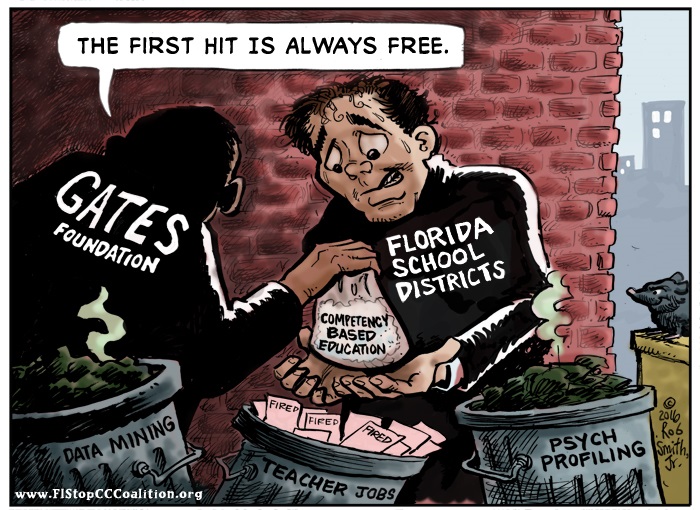News
Slightly Less Bad House Version of Competency Education Bill Passes Senate
March, 2016After Senator Alan Hays (R-Umatilla) tremendous efforts to add some common sense protections regarding choice and career tracking were rebuffed yesterday by SB 1714 bill author, Senator Jeff Brandes, the Senate took up the House version of the bill, HB 1365, and passed it 31-6 today. We are very grateful to Senators Hays, Aaron Bean (R- Fernandina Beach), Rob Bradley (R- Orange Park), Dwight Bullard (D-Miami), Charlie Dean (R- Inverness), and Travis Hutson (R - Jacksonville) for their likely to be prescient choice to vote no.
The good news is that the House version of the bill does not assume district or statewide implementation of the competency based education program before the results of the pilot are in, so although difficult for the districts involved, it will not spread beyond Lake, Pinellas, Palm Beach, and Seminole Counties, at least at this time. And, the application does not have to show a vision of district wide implementation as part of the application.
The bad news is that very incorrect information about data privacy and career tracking was stated during the debate on Senator Hays' amendment:
Senator Brandes - Data for the pilot program is not collected on individual students, but only on schools
Lake County
op a mechanism to allow students to have some voice and choice in how instruction is delivered and how mastery is evidenced, based on data in the learner profile."
"Pinellas County Schools plans to personalize learning by: Launching Lealman Innovation Academy in partnership with the New Tech Network in 2015-16. The school will serve as a model of innovation and personalized learning for other district schools to emulate." http://www.pcsb.org/Page/19191
"The smart use of technology supports our innovative approach to instruction and culture. All classrooms have a one-to-one computing ratio. With access to Web-enabled computers and the latest in collaborative learning technology, every student becomes a self-directed learner who no longer needs to rely on teachers or textbooks for knowledge and direction. We use Echo, an online learning management system to create a vibrant network which helps students, teachers, and parents connect to each other, and to student projects across the country." http://www.newtechnetwork.org/about/our-elements
"Tools to support school-wide, project-based learning
Project management tools
Outcome-based gradebook
Student journals
Discussion forums
Peer feedback tool
Behaviour tracker tool
Tools to award and encourage
School and Network-wide groups
Or if a student chooses a career path at the end of 8th based on this course, then finds he doesn't like it or does not do well in that, he has lost much time to switch to college prep or even another career track. The benefit of a traditional education program is that a student has broad based academic knowledge that can be used in ANY career and they can change their minds later. If they are taught knowledge, they will have the habits of mind to be able to develop the "21st century skills" of communication, collaboration, etc. If they focus too early on narrow, specific job skills, they may not learn the requisite knowledge to pivot into other things.
This is career tracking by default, not fiat, but is just as tyrannical as what they do in planned economies. This has been the plan for a very long time:
Here is a quote from a recent report (2013) on global education and workforce training that is very focused on this kind of effort and shows great progress towards Tucker's vision:
Thank you for all you have done to try to stop this bill. We have made progress in that five Republicans actually stood up to a Gates and Jeb Bush foundation backed bill. We must build on this progress, parents in the affected districts must exercise their opt-out rights as reassured by Senator Brandes, and work toward increased privacy rights for students in the next session.


